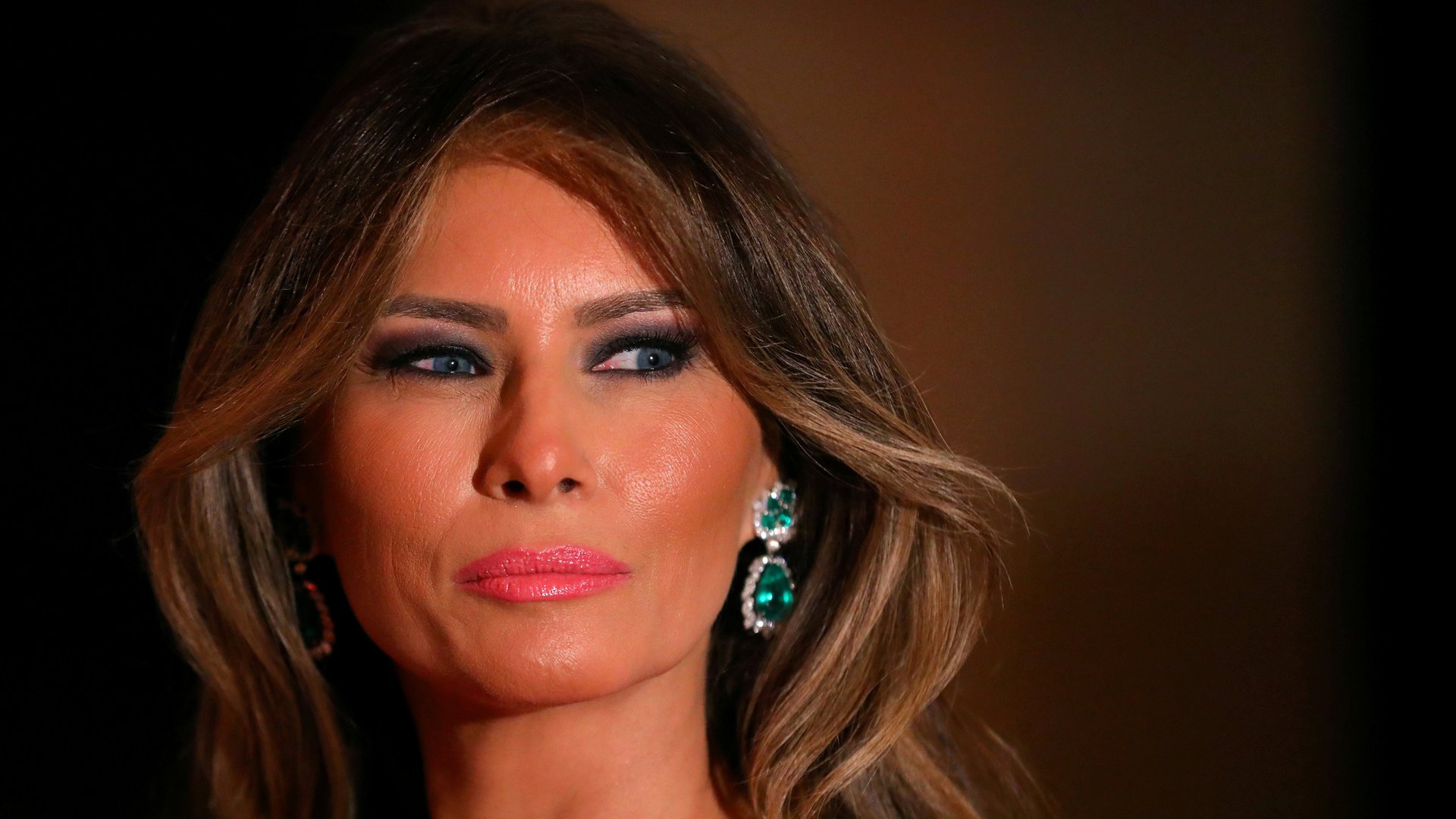To win a lawsuit, Melania Trump might have to prove how she could profit as first lady
A defamation suit filed by Melania Trump in New York on Feb. 6 is raising yet more questions about whether the Trump family can keep its business apart from the office of the US presidency.


A defamation suit filed by Melania Trump in New York on Feb. 6 is raising yet more questions about whether the Trump family can keep its business apart from the office of the US presidency.
The suit concerns a now-retracted article the Daily Mail published repeating unverified claims that Trump had worked for a modeling agency which also served as an escort service for wealthy clients, and seeks no less than $150 million in punitive damages for emotional distress and the harm caused to Trump’s brand and business opportunities—specifically a ”broad-based commercial brand” including, among other things, clothing, shoes, jewelry, and fragrance.
Defamation cases routinely allege that a person’s reputation or business prospects have been harmed, but winning them is another matter. ”The plaintiffs would have to convince the fact finder [the jury] that they were in fact going to do those things and the defamatory statements injured their ability to do so,” says David Ardia, co-director of the Center for Media Law and Policy at the University of North Carolina School of Law.
The language of the lawsuit looks to some like evidence that Melania Trump wants to profit off her public position, a characterization the Donald Trump administration would likely not welcome given recent allegations that president Trump has failed to separate his family’s business interests from his executive office.
Plaintiff had the unique, once-in-a-lifetime opportunity, as an extremely famous and well-known person, as well as a former professional model and brand spokesperson, to launch a broad-based commercial brand in multiple product categories, each of which could have garnered multi-million dollar business relationships for a multi-year term during which Plaintiff is one of the most photographed women in the world.
“To see [plans to launch new brands] in a complaint like this suggests there is something more than just wishful thinking,” Ardia explains. “It suggests plans are being laid to do this, which is what she needs to show she’s been harmed.”
Charles Harder, the attorney representing Trump in the case—and also the attorney who helped Hulk Hogan take down Gawker—disputed the idea that the lawsuit’s language suggests Trump would gain financially from her role. “The First Lady has no intention of using her position for profit and will not do so,” he said in an email. “It is not a possibility. Any statements to the contrary are being misinterpreted.” (We’ve also reached out to the Trump administration for comment and will update this post with any reply.)
The case was filed in New York after a judge in Maryland dismissed the case there, concluding there wasn’t enough connection to the state to establish jurisdiction. At this point it is just at the complaint stage, but if it goes to trial, Harder and Melania Trump will have to make the case that she did, indeed, have plans to launch these businesses, and that their value would have been tied to her “unique” position. That would likely mean bringing evidence to explain what the suit is referring to when it discusses business Trump could have earned from her term as one of the world’s “most photographed women.” (Harder did not reply to a specific request for clarification on this point.)
But few defamation suits make it to trial, according to Ardia. The vast majority are settled. In fact, Melania Trump just settled a suit against a blogger who claimed Trump had worked as an escort. The blogger agreed to pay what Trump’s lawyers called a “substantial sum” and issued an apology for the article.
Ardia says he can’t recall a single defamation case ever brought by a first lady, let alone one alleging damage to business prospects in this way. The case, at the very least, is a legal rarity.